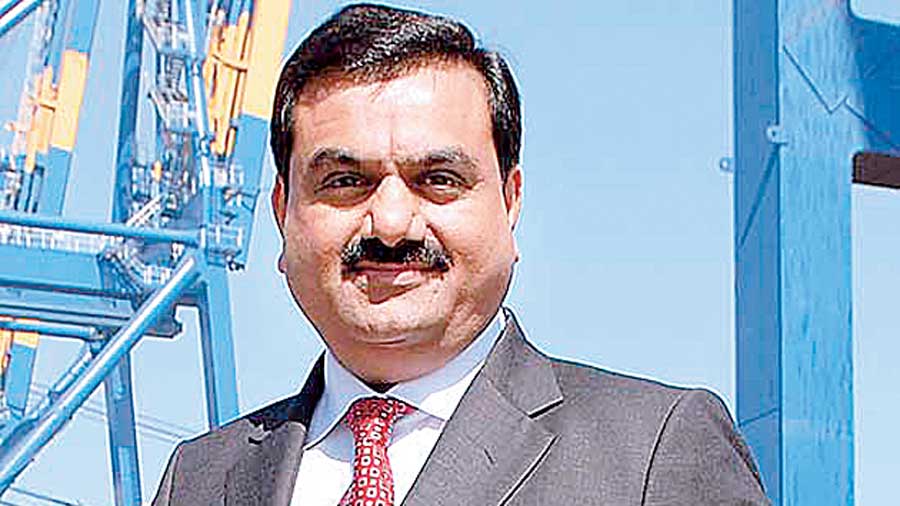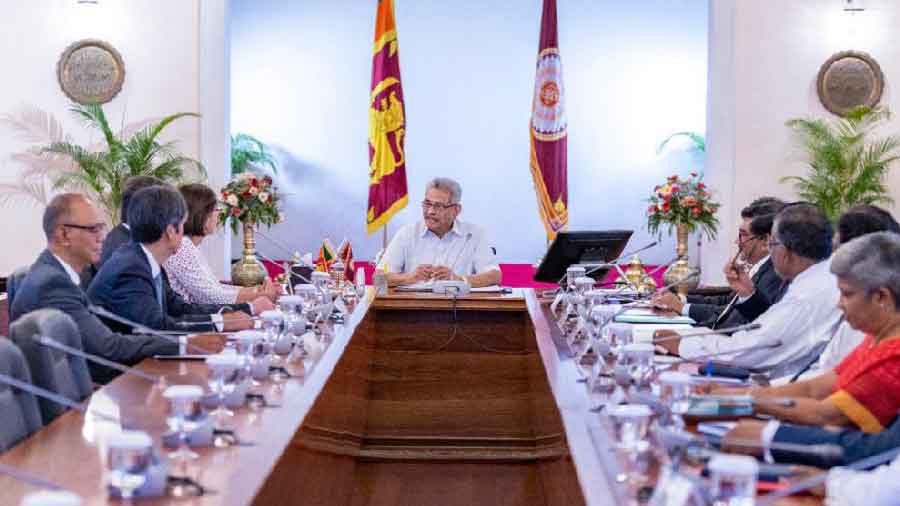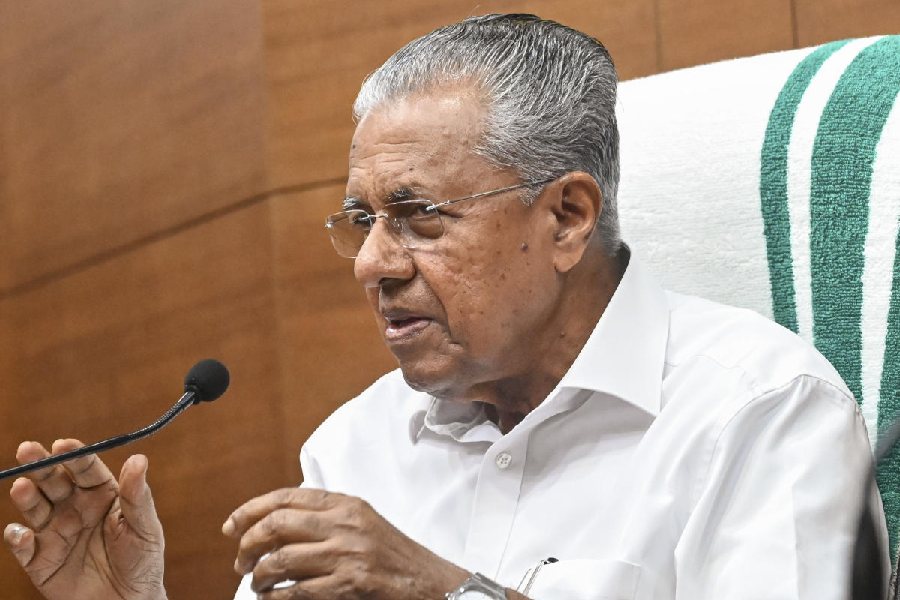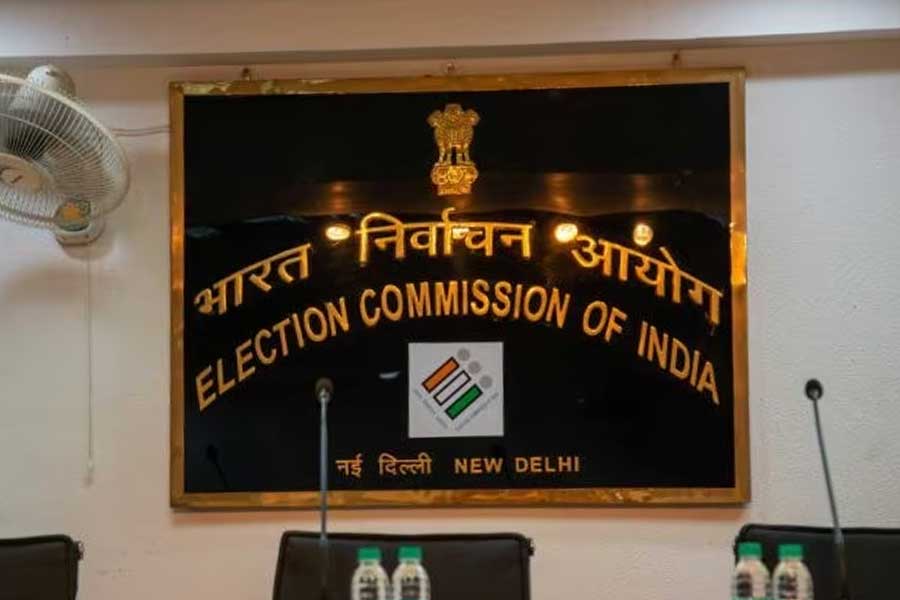Over a fortnight since the Ceylon Electricity Board (CEB) chairman resigned after stating that Prime Minister Narendra Modi had pressured Sri Lankan President Gotabaya Rajapaksa to award a renewable energy project to the Adani Group, the CEB on Thursday clarified that it was done “on the request and recommendation of the Government of India”.
The clarification, issued by the CEB to the Daily FT newspaper, has been carried verbatim by the Sri Lankan business newspaper: “...a proposal from the Adhani Green Energy Ltd. (AGEL) on the request and recommendation of the Government of India has been considered by the Government, and has granted the policy clearance of the Government for the Board of investment (BOI) to proceed with the signing of a Memorandum of Understanding (MoU) with AGEL (signed on 11 March 2022).”
The detailed clarification then goes into the minutiae of the agreement and the process that will have to be followed for the project to get under way.
The award of the renewable energy projects in Mannar and Pooneryn to AGEL had sparked a controversy earlier this month after the then CEB chairman, M.M.C. Ferdinando, was reported to have told the parliament’s committee on public enterprises (COPE) “that the tender for the wind power plant in Mannar had been given to India’s Adani Group as a result of Indian Prime Minister Narendra Modi exerting pressure on President Gotabaya Rajapaksa”.
With the already beleaguered Gotabaya quickly contradicting the CEB chairman publicly through a tweet and a statement from the President’s office, Ferdinando first withdrew his statement and tendered an unconditional apology before stepping down a couple of days later.
Neither the Indian government nor the external affairs ministry made any statement when the controversy broke in Lanka.
Governments everywhere promote their corporate bodies overseas and business delegations have been part of the official entourage of Prime Ministers during foreign visits in the past, but the Opposition here has often flagged what they see as only some business houses benefiting from efforts by the Modi government to facilitate Indian businesses elsewhere.
On this specific case, Congress MP Rahul Gandhi had in the thick of the controversy tweeted: “BJP’s cronyism has now crossed Palk Strait and moved into Sri Lanka.”
Ferdinando’s original statement was lapped up by the Sri Lankan Opposition because Colombo had earlier that week amended an electricity law to do away with competitive bidding. The Sri Lankan Opposition’s contention is that the law was amended to benefit people close to the government.
This is not the first time the Sri Lankan government has publicly said that the Modi government has backed an Adani project in the island nation. On March 2 last year, while awarding the project to develop the West Container Terminal (WCT) at Colombo port to Adani Ports and Special Economic Zone Limited (APSEZ Consortium), the Sri Lankan cabinet had said it was in accordance with a proposal submitted by the Indian high commission.
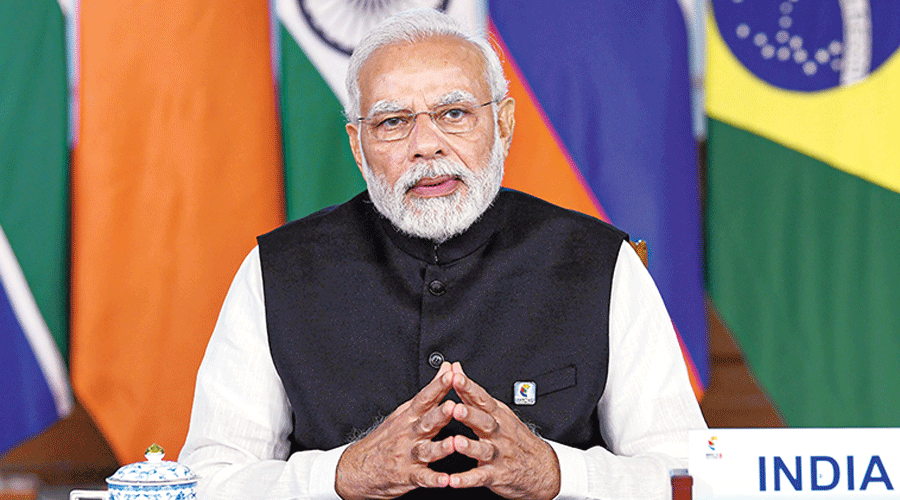
Narendra Modi. File picture
“The proposal presented by Adani Ports and Special Economic Zone Limited (APSEZ Consortium) has been approved by the Indian high commission,” the note had said. India later said the Sri Lankan government had directly engaged with the APSEZ Consortium while clearing the proposal to develop the WCT with Indian and Japanese investors.
“Our high commission in Colombo has already conveyed to the Government of Sri Lanka that their media release insofar as the reference to the approval of the high commission was concerned, is factually incorrect,” then external affairs ministry spokesperson Anurag Srivastava had said.

